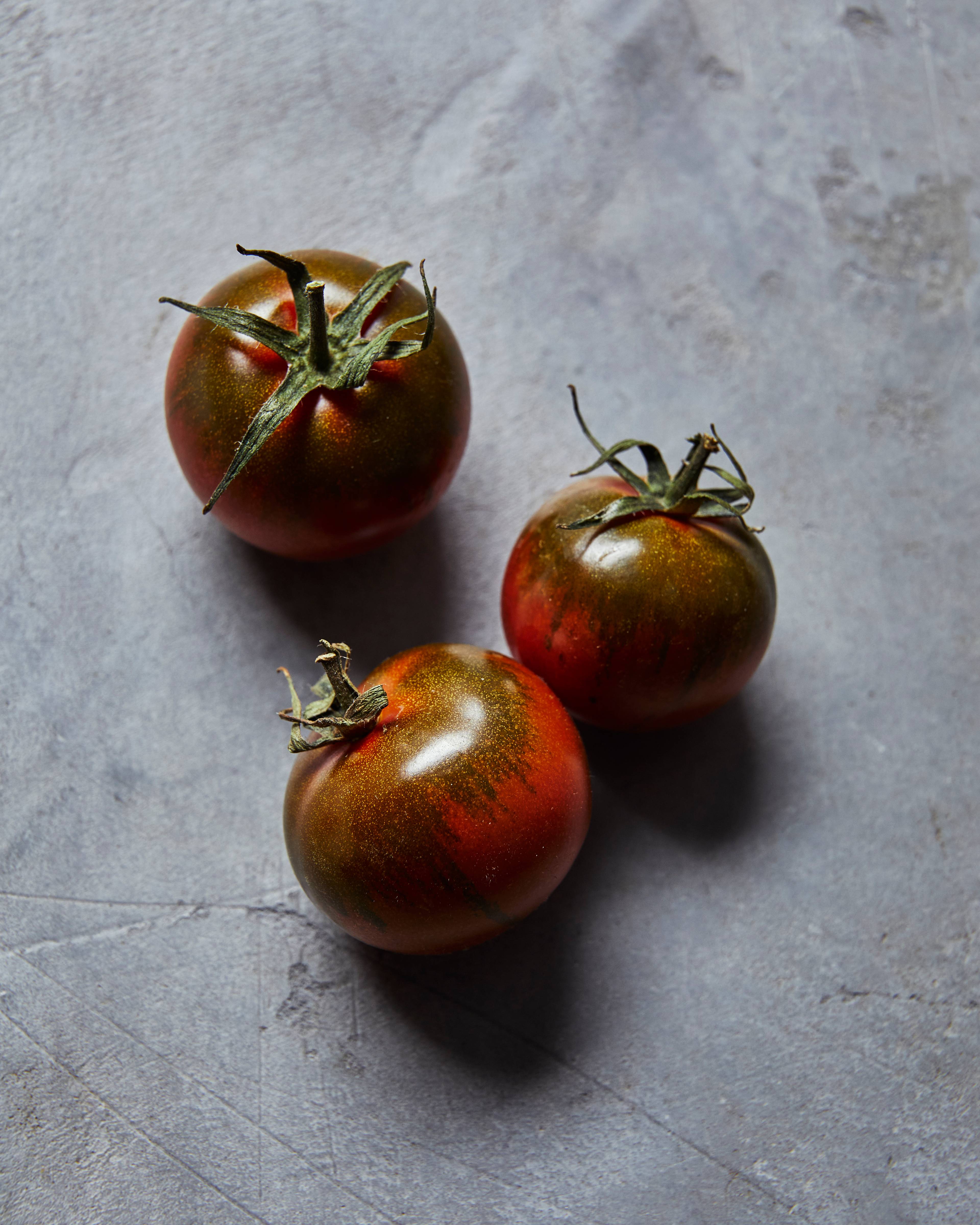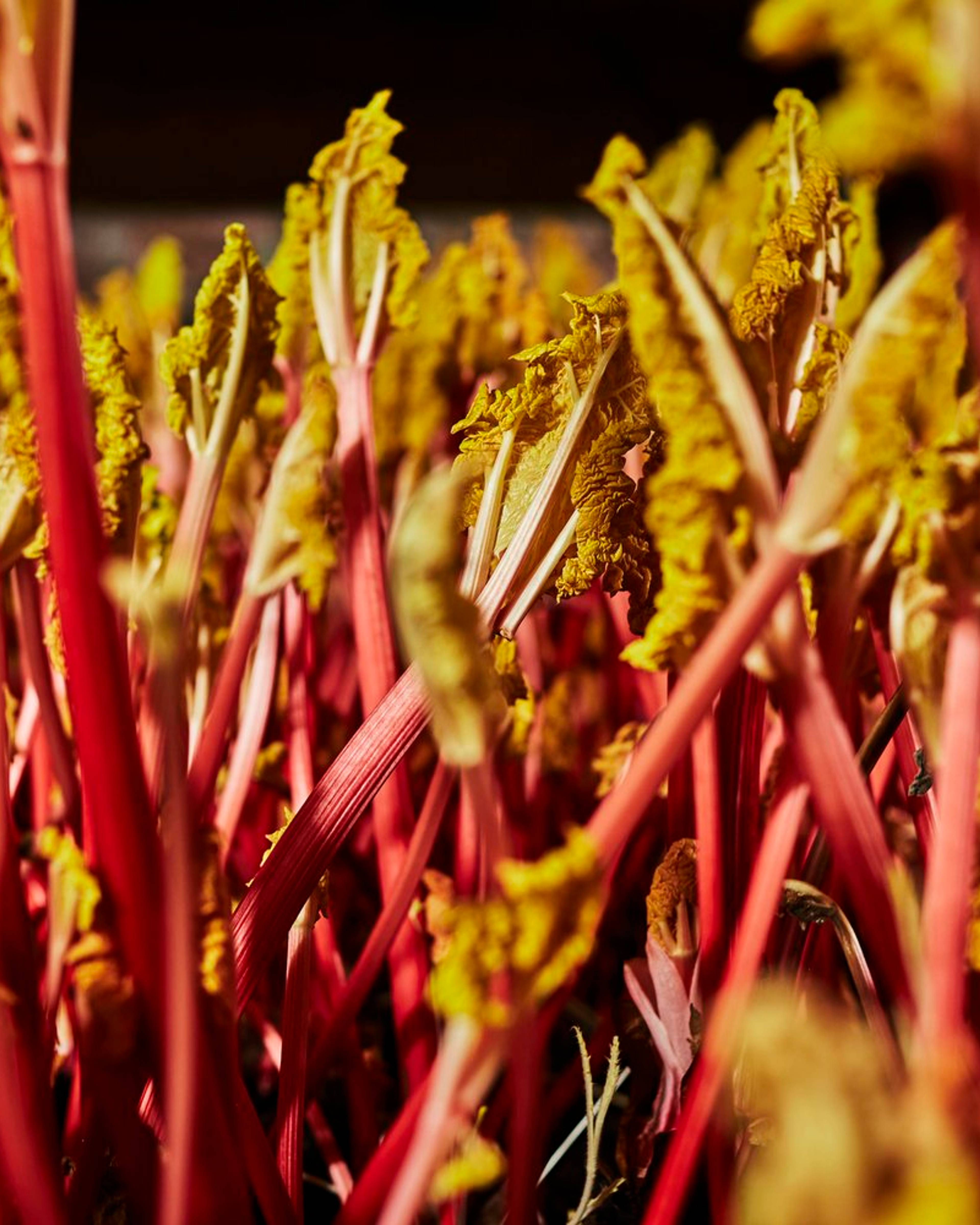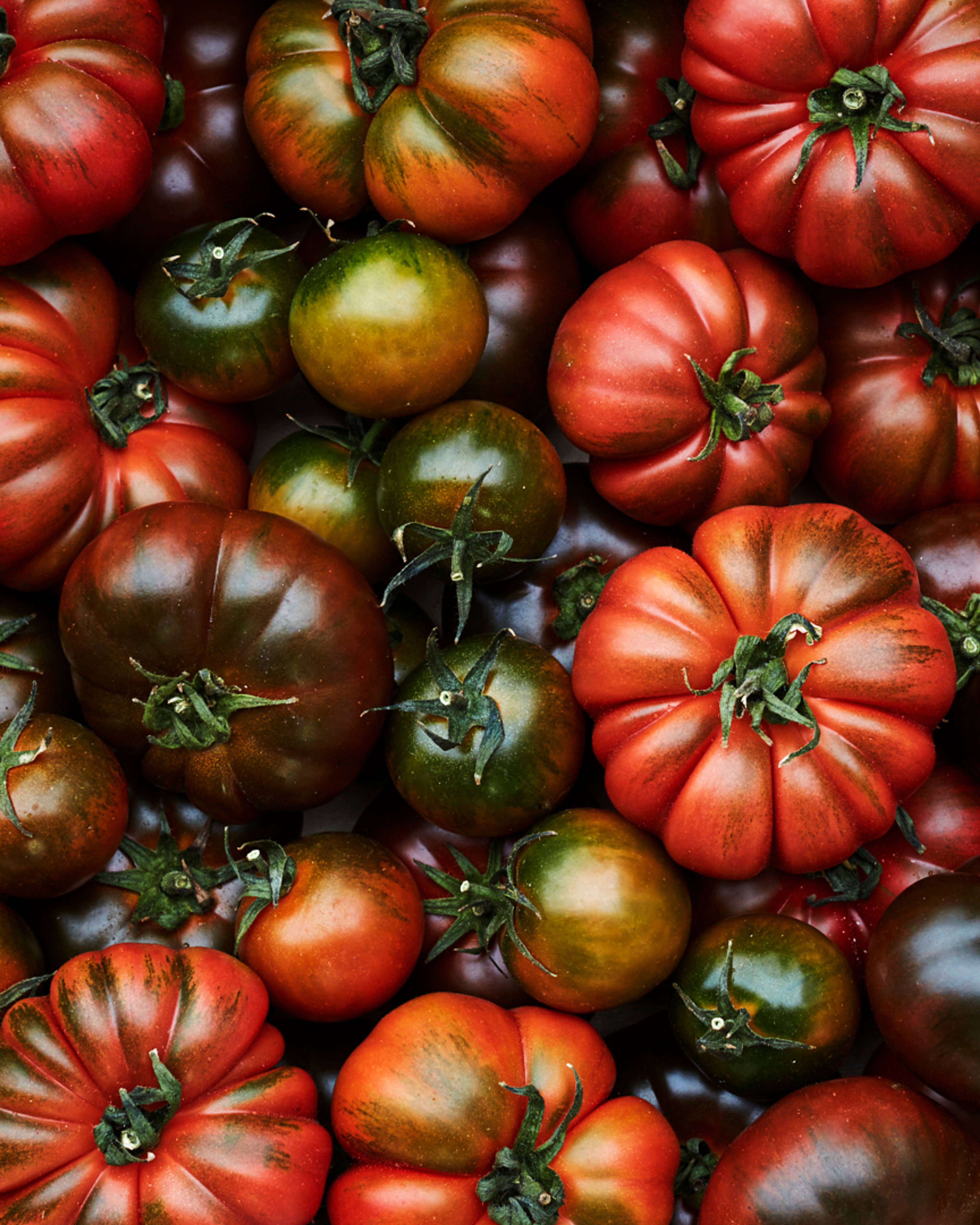What are Winter Tomatoes?
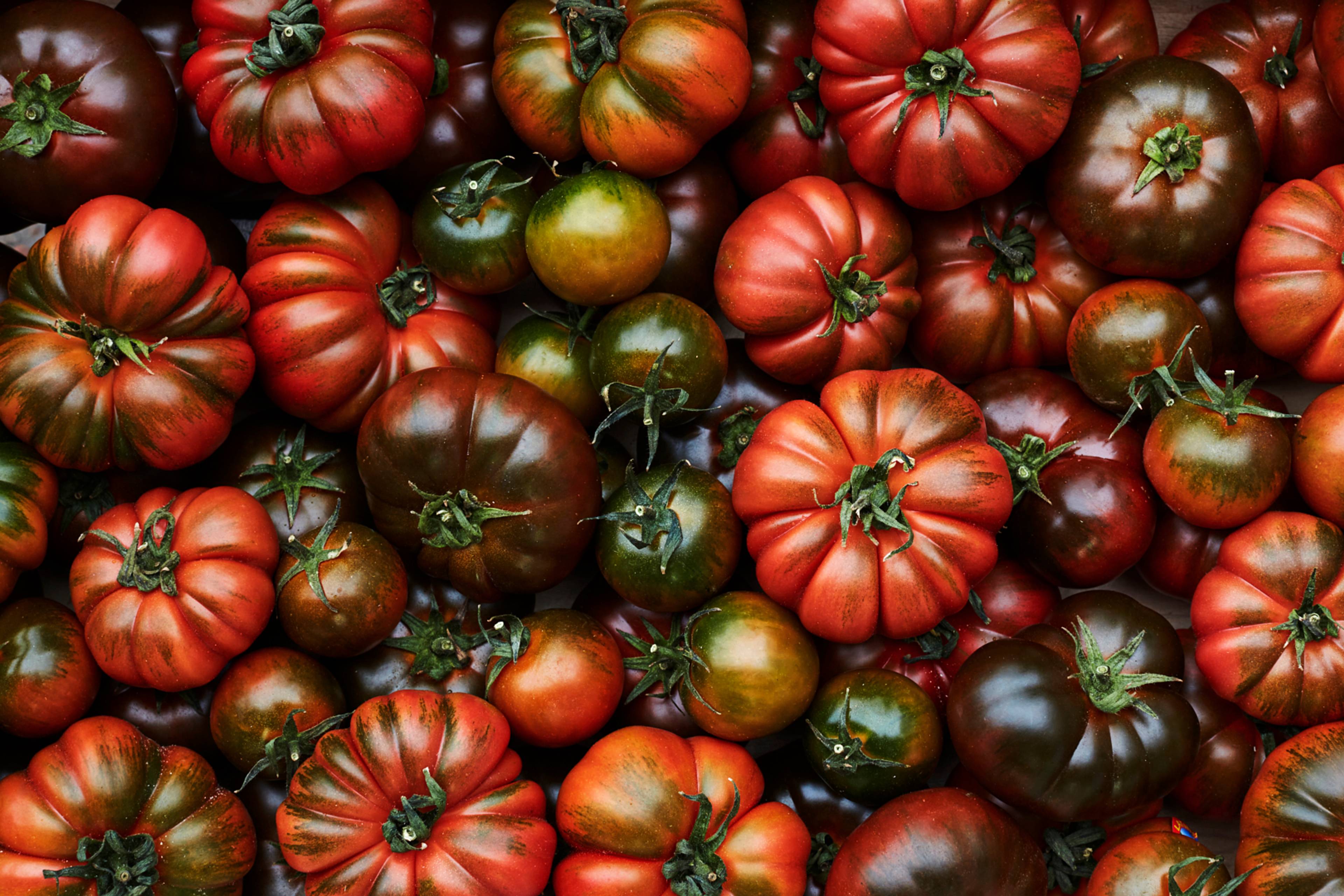
From November to May, get behind a totally new profile for tomatoes. Under taut, collared skins, RAF, Iberiko, Camone and Marinda are firm, with a balance of bright acidity and umami sweetness.
To bring out this unique profile, growers have to strike the perfect balance: create difficult growing conditions which force the plants to work for essential nutrients without causing deficiencies. It’s this growing expertise that builds vitality and flavour.
MINIMALLY WATERED
Winter Tomatoes need to be under-watered, kept at a level that is survivable but arduous, forcing the plant to cling to any nutrients it can draw on. In summer, conditions are too hot and dry for a grower to ever be able to maintain this level of water-stress on their plants: they would simply die.
NATURALLY SALTY
Our Winter Tomatoes are grown in Almería, Sardinia, Puglia and Sicily: coastal regions where the salinity heightens stress on the plant, further decreasing water content in the fruit and concentrating the rich flavours in the flesh. In Sicily, some growers are so close to the sea that their Marinda tomatoes are naturally irrigated by the tides. Other growers, like José, Antonio and Andrès in Almería, manage irrigation with precision, harnessing the natural salinity of the water to keep their plants on the edge of survival.
STRESSED BY SAND
Light sandy soils are typical for coastal regions. Water and nutrients wash through these free draining soils relatively quickly, forcing the plants to work even harder to draw up what they need. Where most growers look for nutrient dense soils, it is arid and relatively barren land that creates the ideal conditions for Winter Tomatoes. In fact, just a few miles away from where Andrès grows RAF, a tomato that ‘really needs to suffer’, José claims his soil is ‘too good’ to grow this variety. He focuses solely on Iberiko, which demands marginally more fertile soils.
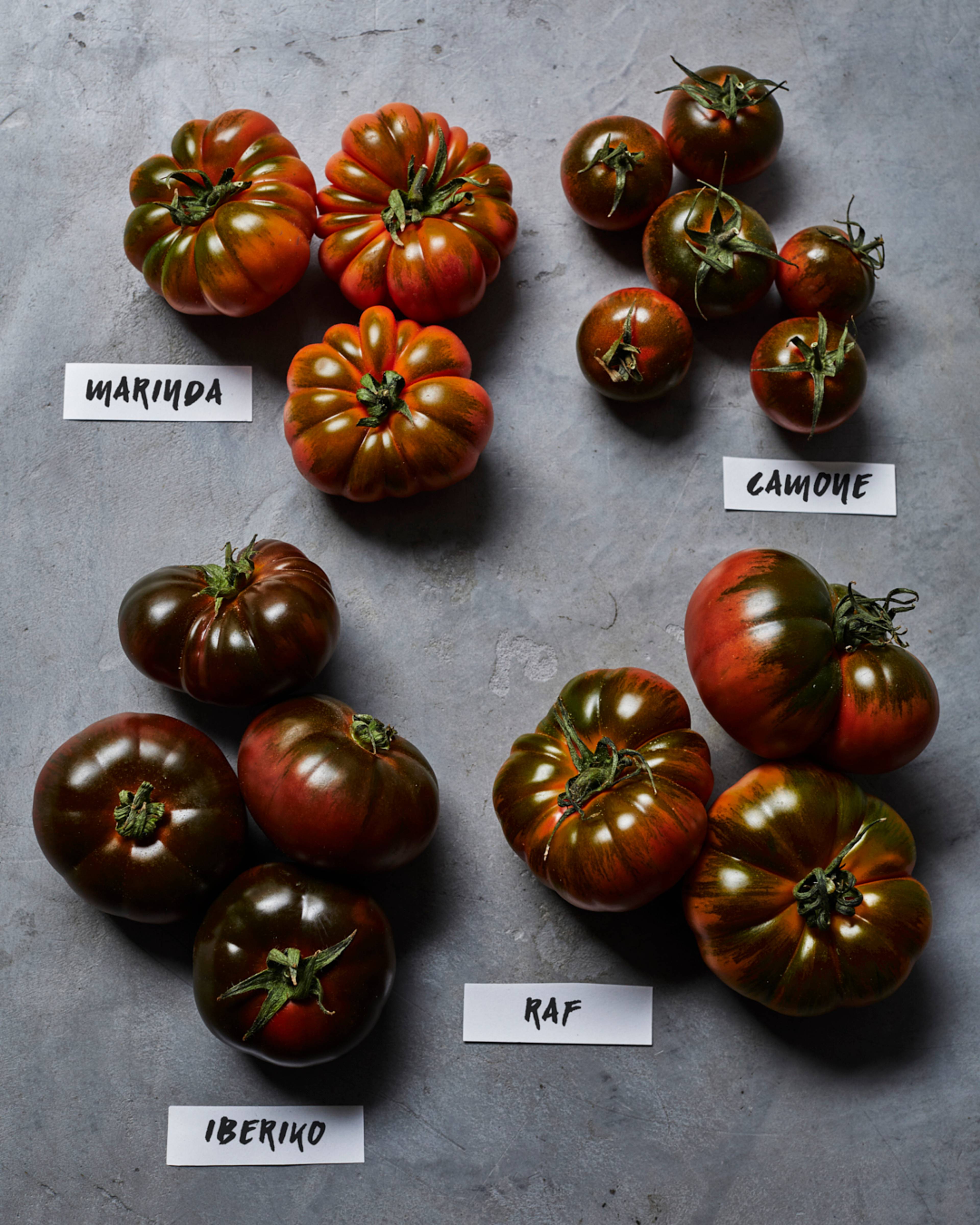
KNOW YOUR VARIETIES
Our founder Franco grew up eating Camone, which were considered a feat of Sardinian agriculture in the 1980’s. It wasn’t until he discovered the Marinda in Sicily that he realised there was a whole group of seasonal tomatoes that existed under the radar. He coined them ‘Winter Tomatoes’. Here’s how to set them apart.
Iberiko
Early November – late April
Grown in Almería, Spain.
Brothers José and Antonio have chosen to mark out their crop from the wave of substandard, faster-growing yet similar-looking Iberico varieties that now flood the market. Their ‘Iberiko’ are the real deal.
This variety has wine dark skin and a moss green collar. Iberiko tend to soften faster than RAF, Marinda or Camone but — if soft — make great sauce. Simply sweat down with good olive oil and season lightly. Their low water content means concentrated flavour.
RAF
Early November – early May
Grown in Almería, Spain
By the end of the 1990s, cultivation of genuine RAF Tomatoes began to be replaced by hybrids. These new varieties have higher yields, built-in resistance to certain diseases and an improved aptitude for manipulation and transportation. They dominate the market but bear little resemblance to the original RAF: pointed rather than flat bottomed, wholly red rather than marked with a stark green collar and lacking in any complexity of flavour.
Andrés works with the genuine RAF seed and preserves the growing artistry that brings out incredible flavour.
Camone
Mid December – late May
Grown in Puglia and Sardinia
The smallest in the category, our founder, Franco, grew up eating Sardinian Camone. In the early 2000’s one company took ownership of the Camone seed and forced growers to sell their harvests back to them, creating a total monopoly.
A few years ago, a handful of growers decided to 'reclaim' the true Camone seed and its characteristics. Through trials and careful seed selection, they are now growing a variety which shows all the signs of the original seed — these are the ones we source.
Marinda
Early February – late May
Grown in Sicily, Italy
The variety we believe has the most complexity of flavour. Medium sized and deeply rigid, Marinda are tart and salty, but with a balancing sweetness in their firm, almost crunchy flesh.
The popularity of Marinda has brought about a look-a-like, Marinella, which grows without the same level of stress. Available as early as November, Marinella are marginally larger, have a slightly thicker skin and can produce good fruits albeit without the same complexity as Marinda.
The best way to enjoy Winter Tomatoes is raw, pure and simple.
If small, cut them into wedges. If larger, roughly cut them or slice them thinly starting at the base. Lightly season with sea salt and the best quality extra virgin olive oil to taste. You might not need the salt at all.
Franco, Natoora founder
READ MORE
Voir toutWe exist to fix the food system.
People are more cut off from the origins of their food than ever. This makes flavour, nutrition and farming practices that protect the planet, almost impossible to find.
By working directly with growers, we create a more sustainable way forward for farming. By giving everyone the tools to understand the power of our food choices, we empower everybody to become drivers of change.
Now is the time for action. Join the food system revolution.

Go beyond four seasons
Each fruit and vegetable has its own season, with subtle shifts which happen every day. Follow their microseasons to unlock flavour at every stage.
WHAT’S IN SEASON?

Know where your food comes from
We know the name of the people behind everything we source. Recognise their growing artistry to find out exactly where your food comes from (and why that matters).
MEET THE GROWERS

Make your diet diverse
Our growers work with varieties chosen for quality and nutrition, not yield. By selecting their crops you keep heritage seeds in play, add to ecosystem biodiversity and preserve unique flavours.
PEAK SEASON BOX
United Kingdom
© 2026 Natoora Ltd.
